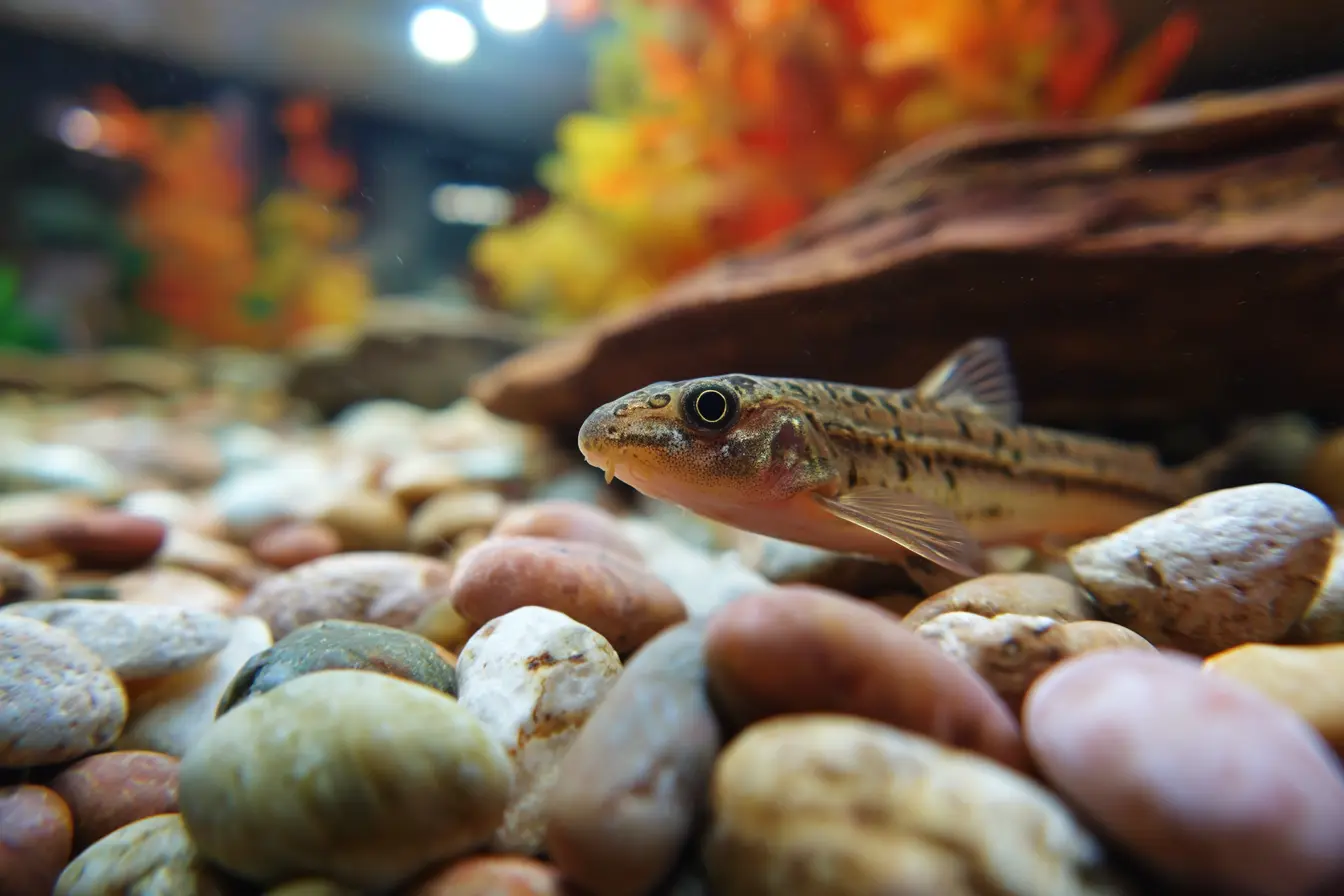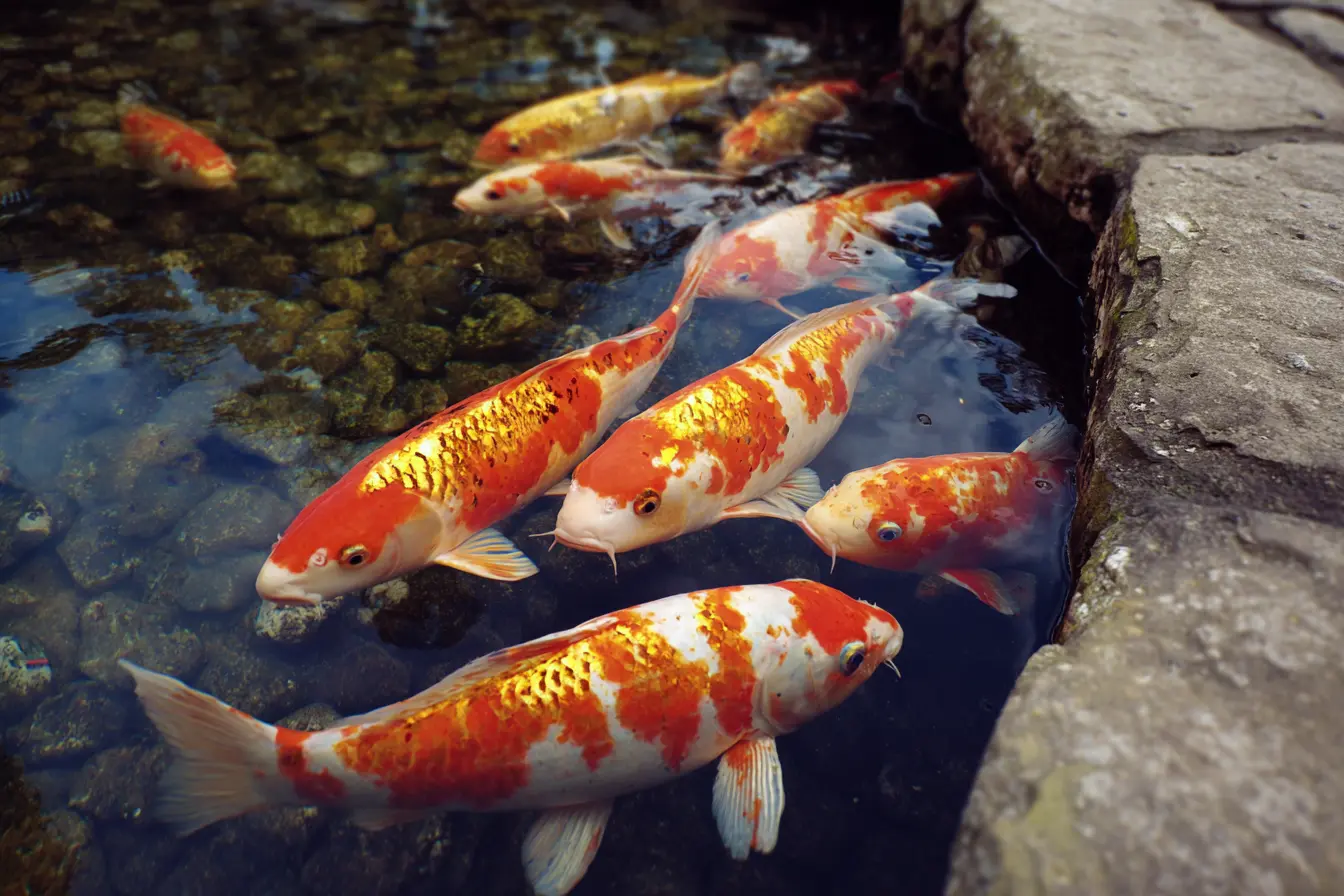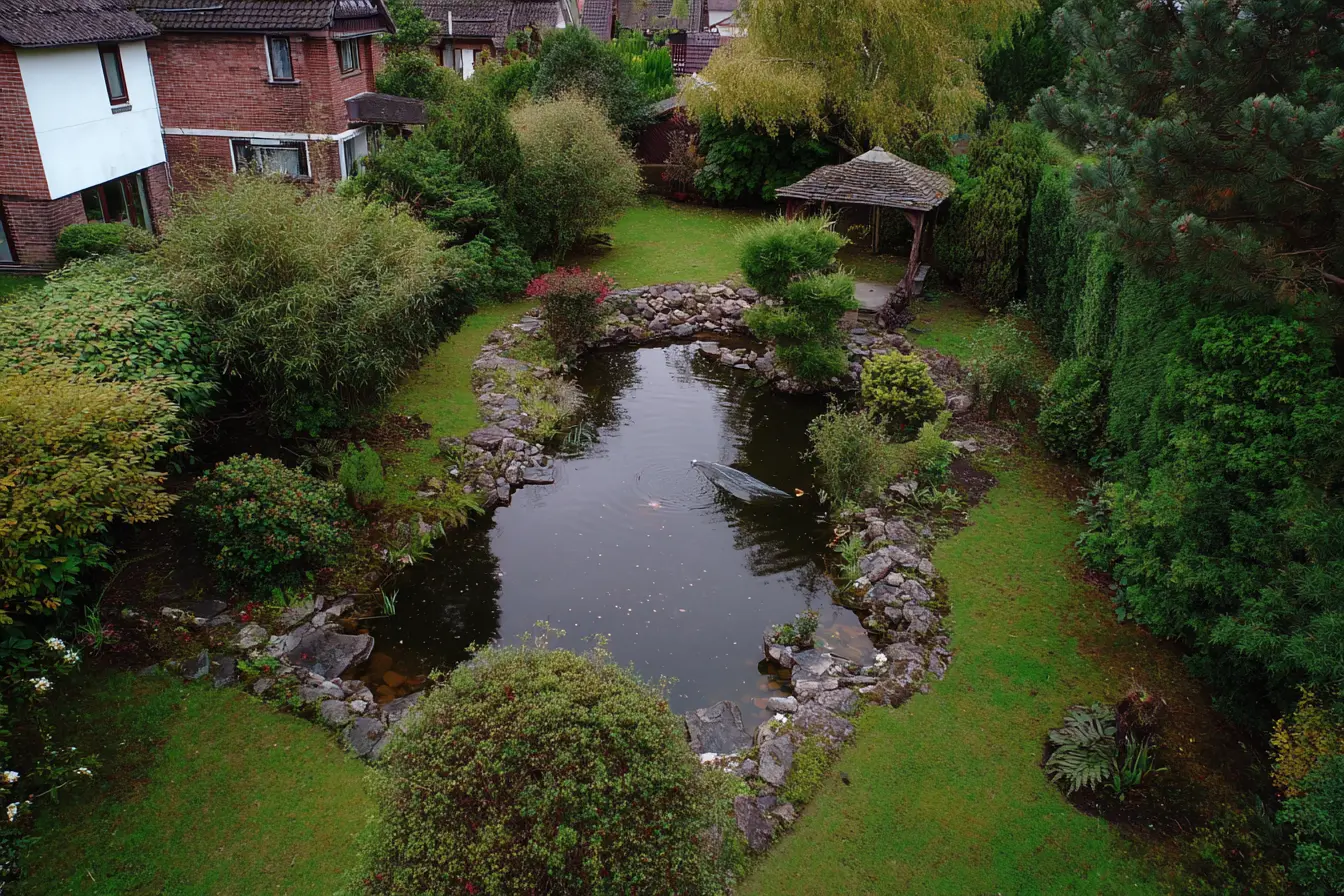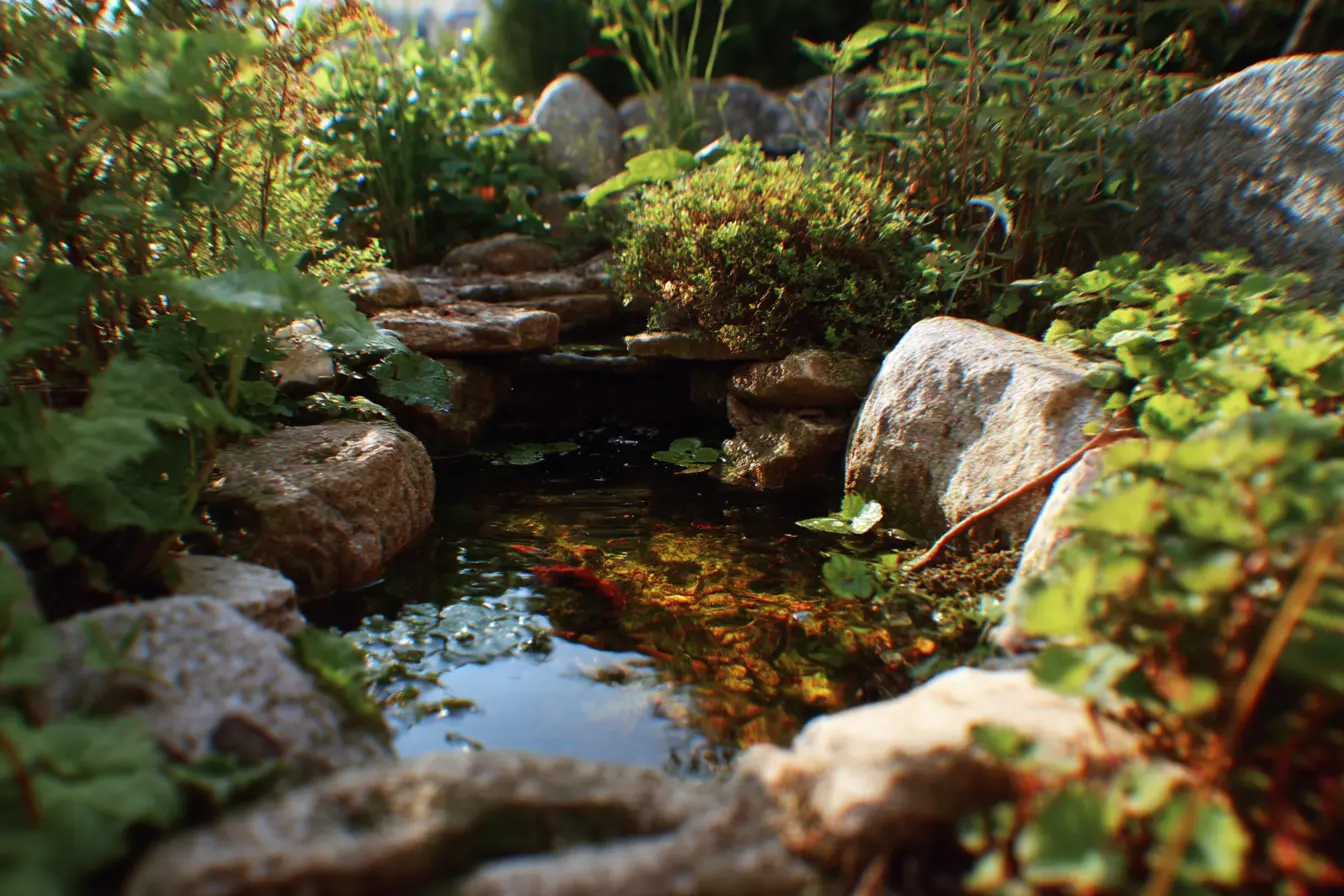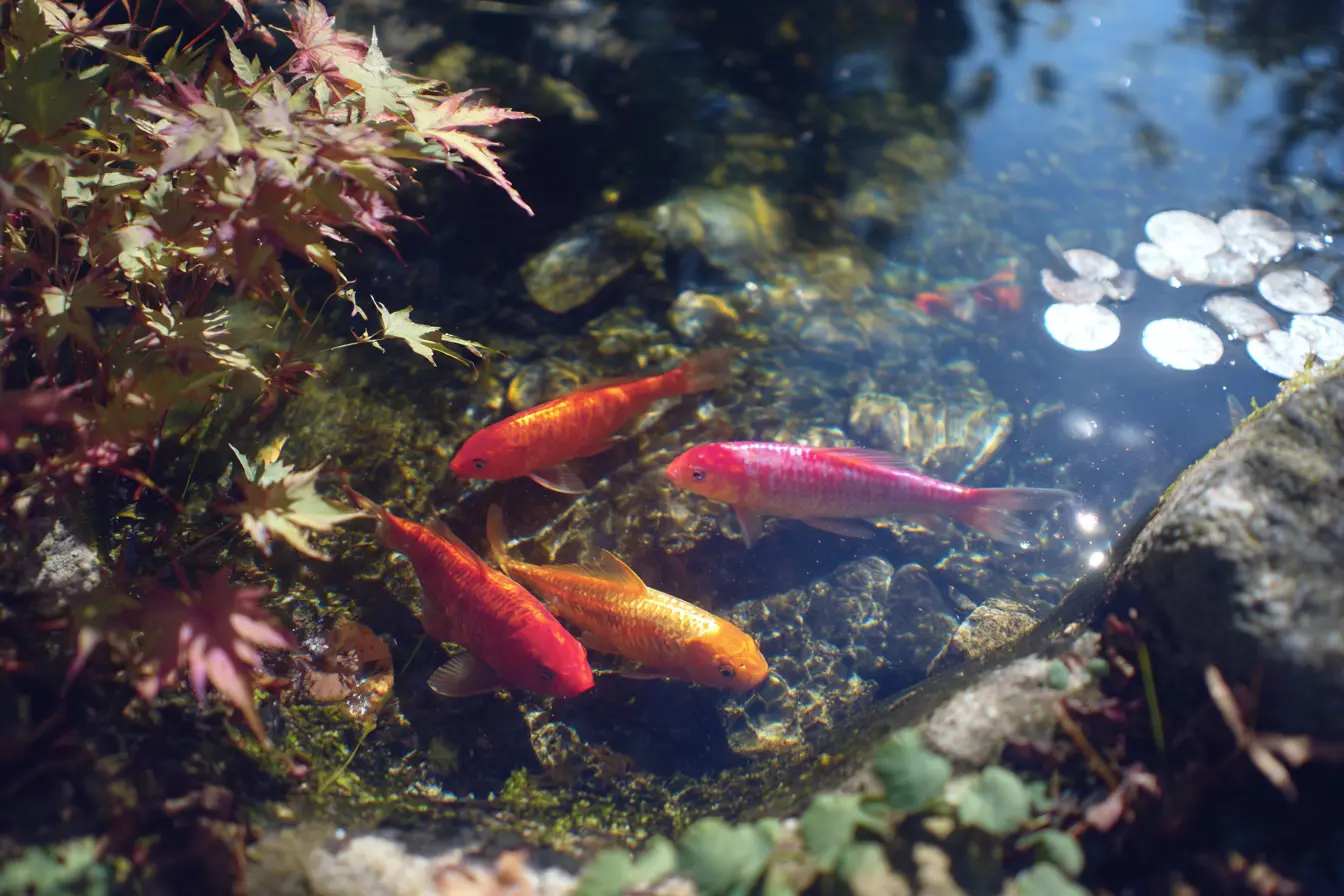
Keeping Goldfish: A Complete Guide for Healthy and Happy Fish
Goldfish have long been a favourite for garden ponds in the UK, known for their bright colours, hardy nature, and graceful swimming. While they’re often considered low-maintenance, goldfish still need proper care and attention to thrive in an outdoor pond. This guide covers everything you need to know about keeping pond goldfish, from choosing the right fish to maintaining a healthy and balanced environment.
Choosing Goldfish for Your Pond
There are several types of goldfish that do well in ponds:
- Common Goldfish: Hardy and active, they’re ideal for beginners.
- Comet Goldfish: Recognised by their long, flowing tails, they’re lively and colourful.
- Sarasa Comets: Known for their striking red and white patterns.
- Shubunkins: Calico-patterned goldfish with blue, red, and white colours.
Fancy goldfish varieties like orandas and ryukins are generally better suited to aquariums, as they’re less robust and more prone to issues in outdoor conditions.
When buying new fish, choose healthy specimens with bright colours, clear eyes, and smooth, intact fins. Avoid fish with signs of disease or injury, such as torn fins, white spots, or unusual swimming behaviour.
Creating the Ideal Pond Environment
Goldfish need a well-designed pond to stay healthy and stress-free. Consider these key factors:
Pond Size and Depth
- Size: A minimum volume of around 1,000 litres (220 gallons) is recommended for goldfish, with more space always being better.
- Depth: At least 45 cm deep in mild climates, but 60 cm or deeper is preferable in the UK to help fish survive winter.
A larger, deeper pond also helps maintain stable water temperatures, which is essential for goldfish health.
Filtration and Aeration
Goldfish produce a lot of waste, so a good filtration system is essential. A combination of mechanical and biological filtration will keep water clean and reduce harmful ammonia and nitrite.
- Mechanical filtration removes physical debris.
- Biological filtration supports beneficial bacteria that break down waste products.
Aeration, such as a fountain, waterfall, or air stone, helps maintain oxygen levels, particularly important in summer when water holds less oxygen.
Water Quality
Maintaining high water quality is vital for goldfish health:
- pH: Ideally between 7.0 and 8.0.
- Ammonia and nitrite: Both should be zero.
- Nitrate: Should be below 40 ppm to prevent algae growth.
Test water regularly using a reliable pond water test kit. Carry out partial water changes (about 10–20%) as needed to dilute waste products and maintain balance.
Feeding Your Goldfish
Goldfish are omnivores and will eat a varied diet. In a pond, they’ll graze on natural foods like algae and insect larvae, but supplementary feeding is still essential for their health.
- Feed high-quality pond fish food: Pellets or floating sticks are convenient and nutritious.
- Supplement with natural treats: Chopped earthworms, bloodworms, and blanched vegetables like peas or spinach can add variety.
Feed 2–3 times daily in warmer months, offering only what they can eat within a couple of minutes. In autumn, switch to wheatgerm-based food as temperatures drop. Once water temperatures consistently fall below 10°C, stop feeding altogether, as their digestion slows in cold water.
Seasonal Care and Maintenance
Keeping pond goldfish healthy requires adjusting your care throughout the year:
Spring
- Check water quality and restart pumps and filters if you turned them off for winter.
- Perform partial water changes to refresh water and remove winter debris.
- Begin feeding once water temperatures rise above 10°C.
Summer
- Monitor oxygen levels, especially during hot spells. Use aeration to prevent oxygen depletion.
- Control algae growth by adding floating plants for shade and using a UV clarifier if needed.
- Feed regularly, but avoid overfeeding to prevent water quality issues.
Autumn
- Reduce feeding as temperatures fall. Switch to easily digestible wheatgerm-based foods.
- Net the pond to keep out falling leaves.
- Prune dying plants to reduce decaying matter in the pond.
Winter
- Stop feeding when water is consistently below 10°C.
- Prevent ice cover by using a pond heater, air stone, or de-icer to allow gas exchange.
- Avoid disturbing fish, as they will be resting at the bottom of the pond.
Goldfish Health and Common Issues
Healthy goldfish are active, have bright colours, and show interest in food. Watch for common signs of health problems:
- White spots (ich) on fins or body.
- Clamped fins (fins held tight to the body).
- Lethargy or gasping at the surface.
- Scratching against rocks or plants.
If you notice these signs, test water quality first, as poor water conditions often cause health issues. Treat any diseases promptly with appropriate treatments, following the manufacturer’s instructions carefully.
Adding New Fish to Your Pond
Introducing new fish requires care to prevent disease outbreaks:
- Quarantine new fish in a separate tank for at least 2 weeks before adding them to the pond.
- Acclimatise new fish slowly by floating the bag in the pond for 15–20 minutes, then adding pond water gradually before release.
- Add fish in small groups to avoid overwhelming the pond’s biological filtration.
Supporting Wildlife and the Ecosystem
A balanced pond benefits from more than just goldfish. Aquatic plants provide cover, oxygen, and help absorb nutrients that would otherwise feed algae. Marginal plants like water iris and marsh marigold add beauty and support pollinators, while submerged plants like hornwort help maintain water quality.
Your pond will also become a haven for local wildlife, from dragonflies to frogs. Take care to protect these visitors while maintaining a healthy pond for your fish.
Conclusion
Pond goldfish are a joy to watch and care for, bringing movement and colour to your garden. With proper planning, regular maintenance, and seasonal adjustments, your goldfish will thrive and provide years of enjoyment.
Vets near you
Speciality vets
- Aquatics vet specialists
- Birds vet specialists
- Camelids vet specialists
- Cats vet specialists
- Cattle vet specialists
- Deer vet specialists
- Dogs vet specialists
- Equines vet specialists
- Exotic vet specialists
- Goats vet specialists
- Pigs vet specialists
- Poultry vet specialists
- Sheep vet specialists
- Small Mammals vet specialists
- Wild vet specialists
Vet facilities
- Accessible by public transport
- Blood testing
- Car park nearby
- Client car park
- Dentistry
- Diagnostic imaging
- Disabled public access
- Flea and worm treatments
- Microchipping
- Mobile services
- Neutering
- Open at weekends
- Out-of-hours service
- Referral interests
- Referrals only
- Street parking outside
- Toilets available
- Vaccinations
